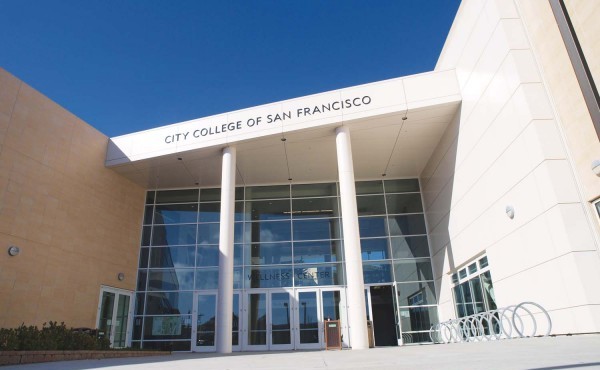Community College Accreditation Does Not Equate to Quality Education

The City College of San Francisco (CCSF) is in the process of losing its accreditation--its ability to award meaningful degrees and transferable credits to students. The campus has until July 2014 to prove its a worthy institution to the Accrediting Commission of Community and Junior Colleges (ACCJC).
The ACCJC regulates campuses' ability to award meaningful degrees and transferable credits. However, CCSF's loss of accreditation would have little to do with the performance of its students:
"The Commission cited the lack of financial accountability as well as institutional deficiencies in the area of leadership and governance as the main obstacle's to the College's turnaround."
Kasey Gardner was reached for comment on the deeper issues that take place at community colleges. Gardner is the chair of the speech department at Los Medanos Community College in the east bay of San Francisco.
Gardner has also returned to the community college system as a student taking online courses. He experienced a lack of quality education, which isn't emphasized in the accreditation process. He explained issues with the accreditation process:
"The focus is on money and student learning outcomes (SLO) and not student learning as more and more content gets put online. [This] limits the added value of having an instructor versus massively open online courses. On one hand the government seems to be using accreditors to make educators accountable, but the ACCJC doesn't do much with assessment that improves instruction."
When asked about issues with accountability and how it can improve quality at community colleges, Gardner gave recommendations:
"Focus on faculty development, teacher training, overhaul the evaluation process which includes more observations and content review of some curriculum and assignments and remove non-productive paperwork being put on teachers."
The non-productive paperwork refers to the "sub-legitimate" process set up by ACCJC, which is also funded by taxpayers.
Gardner explained that rate of degree attainment would be a very ineffective statistic to rely on for accountability. Campuses run the risk of conforming degree requirements to inflate degree attainment rates. Gardner gave an anecdote of a conversation among faculty:
"Didn't I want to reward students for work? Of course I do, but making it easier to earn the prize doesn't value accomplishment, it devalues it. If I decide 65% is now a C, more people will pass but they still don't know the material. Also addressing my concern about doing this "solely for the college's statistics," I was refuted with "well, many colleges are already doing it."
Community colleges are institutions of higher education with open access. It is a cost-effective way of earning a two-year degree and/or transferring to a four-year college. In California, tuition costs $46 per unit and full-time student status requires 12 units.
San Francisco City College enrolls more than 30,000 students every semester. It is the largest institution of higher education in California in terms of total enrollment. If accreditation is lost, its students will look elsewhere for an institution that can award college credit and degrees.




